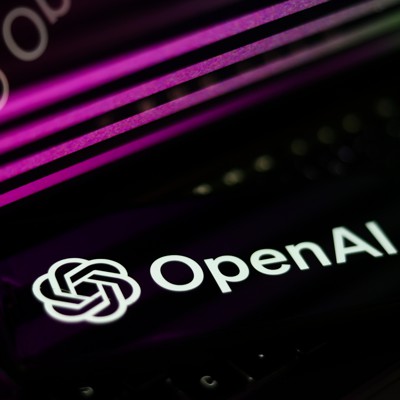FTC Probe Into OpenAI: Implications For AI Regulation

Table of Contents
OpenAI's Alleged Violations and the FTC's Concerns
The FTC's investigation centers on potential violations related to consumer protection, data security, and the dissemination of misinformation. OpenAI's powerful AI models, particularly ChatGPT and DALL-E, are at the heart of this scrutiny. The concerns are multifaceted:
-
Data Privacy Concerns: The FTC is investigating whether OpenAI adequately protects user data, particularly sensitive information used to train its models. This includes concerns about data breaches, unauthorized access, and compliance with existing data privacy regulations. The sheer volume of data used by these large language models (LLMs) raises significant data security challenges. Robust data anonymization and security protocols are crucial aspects of responsible AI development.
-
Misinformation and Unfair Practices: The ability of OpenAI's models to generate realistic yet potentially false information is a major concern. The FTC is exploring whether OpenAI has taken sufficient measures to prevent the spread of misinformation and harmful content generated by its AI systems. This includes investigating whether OpenAI's practices constitute unfair or deceptive trade practices under consumer protection laws. The potential for these models to be used for malicious purposes, such as creating deepfakes or spreading propaganda, is another key area of investigation.
-
Bias and Accuracy in LLMs: Concerns exist about the accuracy and potential biases embedded within OpenAI's LLMs. These biases, often reflecting biases present in the training data, can lead to unfair or discriminatory outcomes. The FTC's investigation is likely to explore the methods OpenAI uses to identify and mitigate these biases.
The Broader Implications for AI Regulation
The FTC's actions could set a crucial precedent for future AI regulation, influencing how other tech companies develop and deploy AI globally. This investigation highlights several key needs:
-
Comprehensive Regulatory Frameworks: The probe underscores the urgent need for clear and comprehensive regulatory frameworks to address AI safety, fairness, and accountability. These frameworks need to balance encouraging innovation with protecting consumers and society from potential harms. A lack of clear guidelines creates significant uncertainty for companies operating in this rapidly evolving field.
-
Global AI Governance: Given the global reach of AI technologies, international cooperation is crucial to develop consistent standards for AI regulation. Harmonized regulations will ensure a level playing field and prevent regulatory arbitrage. This requires collaboration between governments, international organizations, and industry stakeholders.
-
AI Ethics and Responsible AI: The investigation emphasizes the importance of integrating ethical considerations into every stage of AI development and deployment. This includes developing and implementing ethical guidelines, best practices, and robust testing mechanisms to address potential biases and risks. The focus should be on "responsible AI," promoting its beneficial applications while mitigating its potential harms. AI liability also needs careful consideration.
The Role of Algorithmic Bias and Fairness
A crucial element of the FTC's concerns is likely algorithmic bias within OpenAI's models and the potential for discriminatory outcomes. This highlights the critical need for:
-
Fairness in AI Algorithms: The investigation could prompt a more thorough examination of fairness and accountability within AI algorithms. This necessitates rigorous testing and mitigation strategies to address biases stemming from skewed training data or flawed algorithms. Transparency in algorithmic processes is also paramount.
-
AI Ethics Guidelines and Best Practices: Developing and implementing ethical guidelines and best practices for mitigating algorithmic bias is critical for responsible AI development. This requires collaboration between AI developers, ethicists, and policymakers.
Potential Outcomes and Future Regulatory Landscape
The FTC investigation could result in several significant outcomes:
-
Penalties and Enforcement: Possible outcomes include significant fines, consent decrees mandating changes to OpenAI's practices, or even the establishment of new regulations specifically targeting large language models.
-
New AI Legislation: The investigation could spur legislative action at both the federal and state levels, potentially leading to more stringent AI regulation. This could include laws addressing data privacy, algorithmic bias, and misinformation generated by AI systems.
-
The Role of Self-Regulation: The interplay between self-regulation by companies and government oversight will be crucial in shaping the future regulatory landscape. A collaborative approach, where companies proactively address risks and comply with emerging regulations, will likely lead to a more effective and balanced regulatory system.
Conclusion
The FTC's investigation into OpenAI signifies a pivotal moment in the evolution of AI regulation. The potential penalties and broader implications for AI governance are substantial. This probe underscores the critical need for a proactive and comprehensive approach to regulating AI to ensure both innovation and responsible development. The future of AI hinges on creating a regulatory landscape that balances technological progress with the protection of consumers and societal well-being. Further discussions on the FTC probe into OpenAI and its impact on future AI regulation are crucial for ensuring a safe and ethical AI future. We need robust and effective AI regulation now to prevent future harm.

Featured Posts
-
 Major Additions To Bilbao Bbk 2025 Damiano David Sparks And Kaytranada
May 18, 2025
Major Additions To Bilbao Bbk 2025 Damiano David Sparks And Kaytranada
May 18, 2025 -
 Canada Post Door To Door Mail Delivery Commission Report Recommends Phase Out
May 18, 2025
Canada Post Door To Door Mail Delivery Commission Report Recommends Phase Out
May 18, 2025 -
 Ai Powered Podcast Creation Turning Repetitive Scatological Documents Into Engaging Content
May 18, 2025
Ai Powered Podcast Creation Turning Repetitive Scatological Documents Into Engaging Content
May 18, 2025 -
 Should Snl Embrace Stronger Language Bowen Yang Weighs In
May 18, 2025
Should Snl Embrace Stronger Language Bowen Yang Weighs In
May 18, 2025 -
 Kanye West Releases New Track Featuring Diddy And North West Amidst Kim Kardashians Opposition
May 18, 2025
Kanye West Releases New Track Featuring Diddy And North West Amidst Kim Kardashians Opposition
May 18, 2025
Latest Posts
-
 Todays Mlb Home Run Props Focusing On Kyle Schwarbers Odds May 8th
May 18, 2025
Todays Mlb Home Run Props Focusing On Kyle Schwarbers Odds May 8th
May 18, 2025 -
 Mlb Baseball Home Run Prop Bets And Expert Picks For Games On May 8th
May 18, 2025
Mlb Baseball Home Run Prop Bets And Expert Picks For Games On May 8th
May 18, 2025 -
 Kyle Schwarber Home Run Prop Mlb Odds And Predictions For May 8th
May 18, 2025
Kyle Schwarber Home Run Prop Mlb Odds And Predictions For May 8th
May 18, 2025 -
 Mlb Home Run Props Best Picks And Odds For May 8th Cant Stump The Schwarber
May 18, 2025
Mlb Home Run Props Best Picks And Odds For May 8th Cant Stump The Schwarber
May 18, 2025 -
 Riley Greenes Double Ninth Inning Homer A First In Mlb History
May 18, 2025
Riley Greenes Double Ninth Inning Homer A First In Mlb History
May 18, 2025
